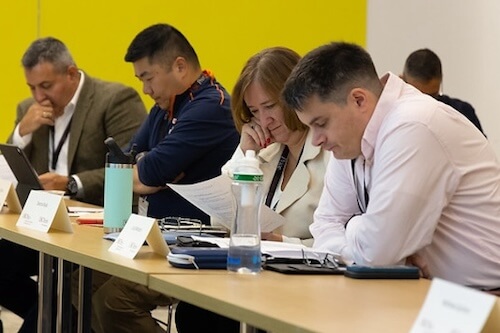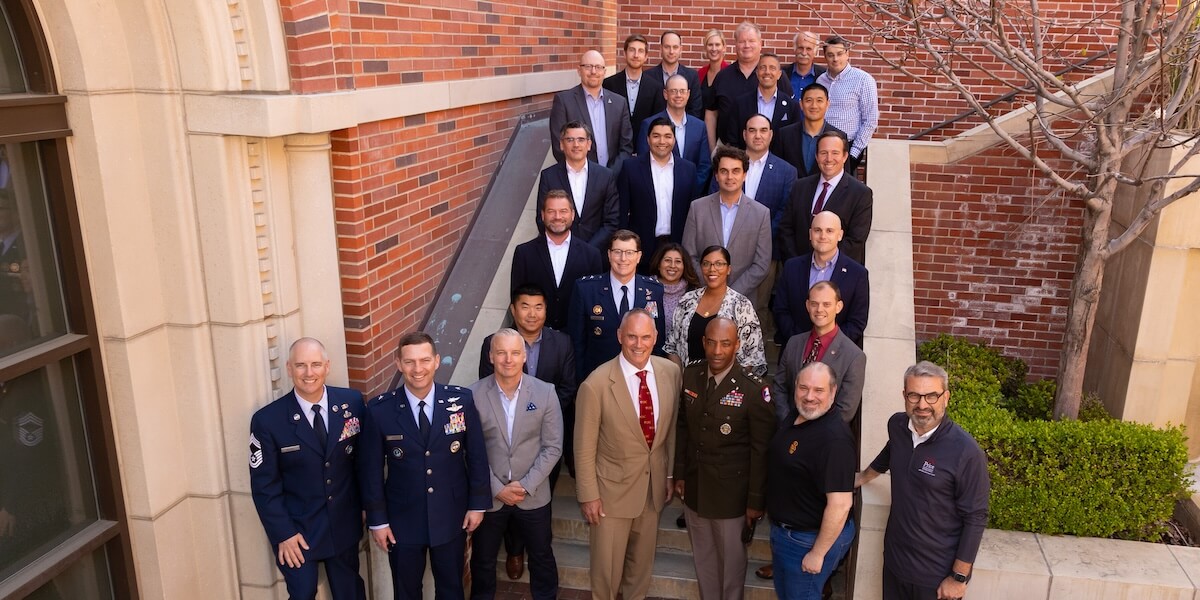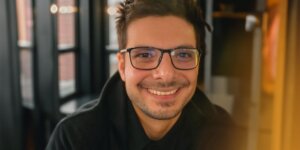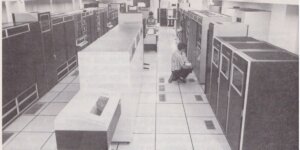Deanna Ryals, the director of international affairs at the U.S. Space Force in Los Angeles, was ecstatic to be selected for the USC SHIELD Executive Program in Global Space and Deterrence. To her, it presented a unique opportunity to gain a fresh perspective on forging global partnerships for space access and defense.
“I had heard about the program from my counterparts who had been in previous cohorts,” she said. “I knew how much they enjoyed it, how much they learned, and was really excited to be considered for it.”
On April 27, Ryals and her 23 classmates, high-level professionals from the Department of Defense, U.S. Army, U.S. Space Force, U.S. Air Force, The National Guard, Lockheed Martin, and Raytheon Technologies, concluded USC SHIELD program. This year’s session, jointly run by the USC Viterbi School of Engineering and the USC Sol Price School of Public Policy, in collaboration with the Missile Defense Advocacy Alliance (MDAA), took place between September 2023 and April 2024, culminating with a three-day residency between April 25 and 27 and group presentations at USC.
The program’s hybrid curriculum on integrated policy and technology readiness for peace and stability equipped top-ranked defense experts from America and beyond with critical skills, especially with international conflicts surging around the world.
“I think working with other students has been most beneficial because you see similar challenges in different organizations and realize that we’re struggling with the same things,” said Col. Minpo Shiue, the Warfighting Integration Office director at the Space Systems Command in Los Angeles. “It makes you want to work together to make a whole government solution on different issues.”
In groups of four and five, the cohort came up with policy and technology solutions to deter war on land, sea or space. Topics included how to leverage assets of non-governmental organizations to ramp up capabilities in space, how to establish joint defense solutions in absence of treaties, and how to use Ukranian acoustic sensors that detect low-flying threats underwater.

From left, USC SHIELD students Walid Nasr, Deputy Director of the Intelligence Space Systems Command at the U.S. Space Force base in Los Angeles,; Col. Minpo Shiue, the Warfighting Integration Office director; Deanna Ryals, the director of international affairs; and Louis Melancon, the Director of the Intelligence Space Systems Command in Arlington, Virginia, studying at USC’s University Park Campus in September. (PHOTO/COURTESY
OF ASHLEY COELHO)
Importantly, the USC SHIELD program allows professionals to think outside the box to accelerate innovation. This is facilitated by the multidisciplinary background of the participants; USC’s strong academic resources; and access to a network of leaders provided by the Missile Defense Advocacy Alliance (MDAA). For example, students could visit SpaceWERX, the innovation arm of the U.S. Space Force, on their first day in Los Angeles in April. USC SHIELD fosters “one of the rare environments where there’s trust to convey ideas and concepts for the military,” said Riki Ellison, founder and chairman of the MDAA and a Trojan alumnus.
The MDAA guest panelists that provided feedback on the capstone presentations included Lt. Gen. Sean Gainey, the commander at the Space Missile Defense Command based in Redstone Arsenal, Alabama, and the Joint Force Functional Command based in Colorado Springs, Colorado. After listening to the students, Gainey defined the capstone themes as “the most difficult problems inside of missile defense today.”
But USC SHIELD is not just about defense research; it’s also about turning innovative and collaborative ideas into reality. One of them is a capstone paper from last year’s cohort, titled “Defense of North America from the Arctic” and co-authored by Jeff Smyth. The director of General Strategies in the Canadian Armed Forces, Smyth is a brigadier general in the Canadian Air Force, and USC SHIELD’s first Canadian and non-American participant. His research is currently being considered by the Department of Defense to defend the Arctic.
“My hope for the future is to invite some of our NATO and other allies to come to this program because it’s about global missile defense and deterrence policy,” said Frank Zerunyan, director of executive education and Professor of the Practice of Governance at the Price School. “The world today is one precious place. Our goal in all our endeavors is to tackle the most wicked problems in space, teaching, and preaching deterrence.”
Indeed, USC SHIELD’s integrated approach is critical to prevent space from becoming a new arena for conflicts and preserve world balance.
“Space defense is increasingly understood as a global necessity,” said Candace House Teixeira, associate dean of corporate engagement and programs for USC Viterbi. “It’s critical for global leaders to think about space for the security of our world, and future exploration beyond it.”
Published on May 9th, 2024
Last updated on May 9th, 2024














